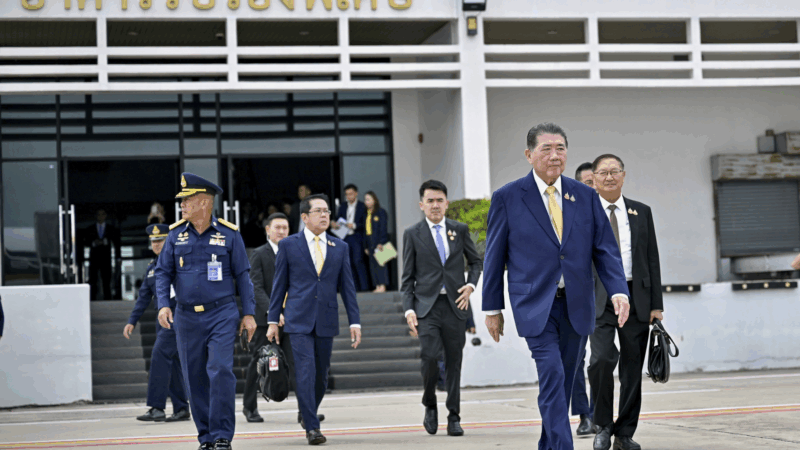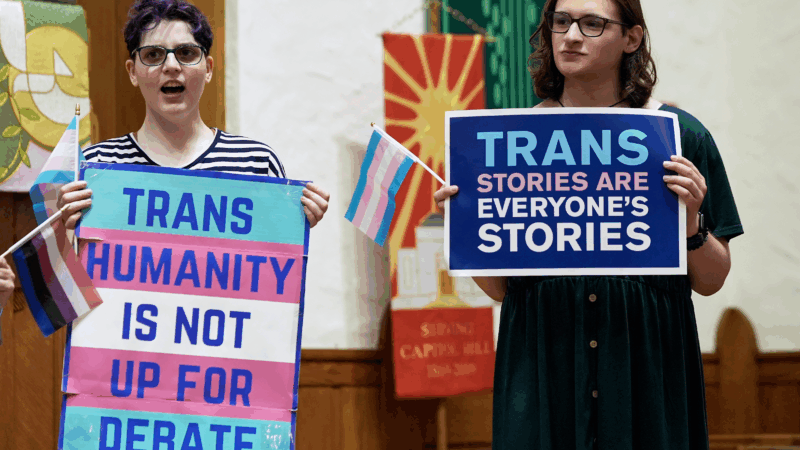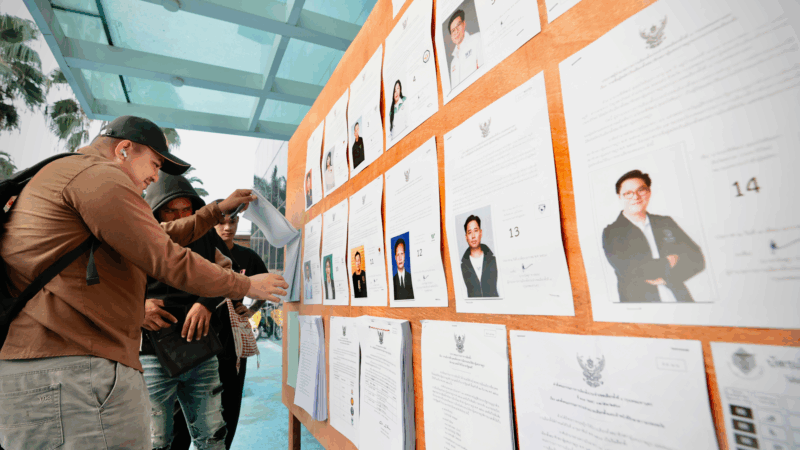Cambodian and Thai leaders hold ceasefire talks in Malaysia
KUALA LUMPUR, Malaysia — Ceasefire talks have started between Thai and Cambodian leaders in Malaysia in an urgent effort to resolve deadly border clashes that entered a fifth day despite mounting international calls for peace.
Cambodian Prime Minister Hun Manet and Thai Acting Prime Minister Phumtham Wechayachai gathered Monday for the meeting at the official residence of Malaysian Prime Minister Anwar Ibrahim who is hosting the negotiations as chair of the regional bloc, Association of Southeast Asian Nations.
The fighting flared last Thursday after a land mine explosion along the border wounded five Thai soldiers. Both sides blamed each other for starting the clashes, that have killed at least 35 people and displaced more than 260,000 people on both sides. Both countries recalled their ambassadors and Thailand shut all border crossings with Cambodia, with an exception for migrant Cambodian workers returning home.
Troops from both sides reported ongoing fighting Monday along border areas. Gunfire could be heard as dawn broke in Samrong in Cambodia’s Oddar Meanchey province, Associated Press reporters covering the conflict said.
Maly Socheata, a Cambodian defense ministry spokesperson, said the Thai assault was “ongoing and strong” on Monday.
Anwar said late Sunday that both sides would present their conditions for peace but “what is important is immediate ceasefire.”
“I hope this can work,” Anwar was quoted as saying by Malaysian national news agency Bernama. “Although it’s not as bad as many other countries, we have to put a stop (to the violence).”
The meeting followed direct pressure from U.S. President Donald Trump, who has warned that the United States may not proceed with trade deals with either country if hostilities continue.
Before departing for Kuala Lumpur, Phumtham told reporters in Bangkok that representatives from China and the U.S. will also attend as observers. He said the key focus would be on an immediate ceasefire, but noted trust could be an issue as Cambodia has not stopped its strikes.
“We have informed that we don’t have trust in Cambodia. All they have done reflect that they are not sincere in solving this problem. So they have to show the detail how they will do to prove their sincerity,” he said.
Officials later said that the Chinese and American ambassadors to Malaysia are attending the meeting.
The violence marks a rare instance of open military confrontation between ASEAN member states, a 10-nation regional bloc that has prided itself on non-aggression, peaceful dialogue and economic cooperation.
In a statement Monday, ASEAN foreign ministers reiterated concern over the rising death toll, destruction of public properties and displacement of a large number of people along the disputed border areas. They urged the two countries to resolve their disputes through negotiations and expressed support for efforts to find a middle ground during Monday’s talks.
The conflict also drew the attention of Pope Leo XIV. At the Vatican on Sunday, the pontiff said he was praying for all those affected by war in the world, including “for those affected by the clashes on the border between Thailand and Cambodia, especially the children and displaced families.”
At an evacuation shelter in Cambodia’s Siem Reap province far away from the border, Ron Mao, 56, prays for a ceasefire deal during the leaders’ meeting Monday. She and her family fled their home less than a mile away from the front line when fighting broke out Thursday. They took refuge in a shelter but moved again to another camp further away after hearing artillery shelling.
“I don’t want to see this war happen. It’s very difficult and I don’t want to run around like this,” she said, “When I heard our Prime Minister go to negotiate for peace, I would be very happy if they reached the deal as soon as possible, so that I and my children can return home as soon as possible.”
Thai evacuees shared the sentiment.
“I beg the government. I want it to end quickly,” said farmer Nakorn Jomkamsing at an evacuation camp in Surin hosting more than 6,000 people. “I want to live peacefully. I miss my home, my pets, my pigs, dogs and chicken,” the 63-year-old woman said.
The 500-mile frontier between Thailand and Cambodia has been disputed for decades, but past confrontations have been limited and brief. The latest tensions erupted in May when a Cambodian soldier was killed in a confrontation that created a diplomatic rift and roiled Thailand’s domestic politics.
Trump administration lauds plastic surgeons’ statement on trans surgery for minors
A patient who came to regret the top surgery she got as a teen won a $2 million malpractice suit. Then, the American Society of Plastic Surgeons clarified its position that surgery is not recommended for transgender minors.
Sunday Puzzle: -IUM Pandemonium
NPR's Ayesha Rascoe plays the puzzle with KPBS listener Anthony Baio and Weekend Edition Puzzlemaster Will Shortz.
Thailand counts votes in early election with 3 main parties vying for power
Vote counting was underway in Thailand's early general election on Sunday, seen as a three-way race among competing visions of progressive, populist and old-fashioned patronage politics.
US ski star Lindsey Vonn crashes in Olympic downhill race
In an explosive crash near the top of the downhill course in Cortina, Vonn landed a jump perpendicular to the slope and tumbled to a stop shortly below.
For many U.S. Olympic athletes, Italy feels like home turf
Many spent their careers training on the mountains they'll be competing on at the Winter Games. Lindsey Vonn wanted to stage a comeback on these slopes and Jessie Diggins won her first World Cup there.
Immigrant whose skull was broken in 8 places during ICE arrest says beating was unprovoked
Alberto Castañeda Mondragón was hospitalized with eight skull fractures and five life-threatening brain hemorrhages. Officers claimed he ran into a wall, but medical staff doubted that account.







